Iqra’: Read, Transform, Serve
The very first word revealed in the Qur’an, ‘Iqra’, meaning ‘Read’, marks the foundation upon which Islamic civilization is built, encompassing knowledge, reflection, and enlightenment. This divine command is not merely an instruction to read words on a page, but a call to observe the signs in our surroundings, to seek understanding of the existence of the Creator, to ponder His creation, and to internalize the need to build a community rooted in learning and wisdom. This verse epitomizes the necessity for us to be a community of reading, a community of knowledge, whose faith and progress depend on our commitment to ʿilm (knowledge).
The Qur’anic Emphasis on Knowledge
Throughout the Qur’an, Allah repeatedly emphasizes the importance of knowledge. Among the many verses, three stand out in particular:
1. اقْرَأْ بِاسْمِ رَبِّكَ الَّذِي خَلَقَ , translated as “Read in the name of your Lord who created” (Al-ʿAlaq 96:1). The verse begins with the imperative command “Read” (اقْرَأْ), which directs us to actively seek knowledge. This command emphasizes that acquiring knowledge is a conscious, purposeful act and not a passive endeavor. The verse reminds us that all knowledge originates from Allah, and therefore, reading and learning must be guided by divine consciousness. Knowledge pursued without faith or ethical grounding can easily lead to arrogance rather than humility. By heeding this imperative, learners are called to seek understanding with mindfulness, humility, and a sense of responsibility toward both God and society.
2. نۤ وَالْقَلَمِ وَمَا يَسْطُرُونَ, translated as “Nūn. By the pen and what they inscribe” (Al-Qalam 68:1). The verse underscores the significance of the pen as a symbol of knowledge and intellectual responsibility. While the verse does not begin with an explicit command like اقْرَأْ, it implies an active engagement: writing, recording, and preserving knowledge is a responsibility entrusted to humans. Through the pen, knowledge is not only preserved but also shared, transmitted, and built upon across generations. The verse reminds us that the act of documenting and inscribing knowledge is a purposeful endeavor, linking learning to accountability, continuity, and the service of society.
3. إِنَّمَا يَخْشَى اللَّهَ مِنْ عِبَادِهِ الْعُلَمَاء translated as “Only those who have knowledge truly fear Allah” (Fāṭir 35:28). The verse establishes a profound link between knowledge and khashyah, a deep reverence and awe of Allah. While the verse is declarative rather than an explicit command, it carries an implicit imperative, in that those who seek knowledge are called to cultivate a consciousness of God in all they learn and do. True learning, therefore, is not a pursuit of personal pride or status; it is a responsibility to approach knowledge with humility, mindfulness, and moral accountability before the Creator. In this sense, the verse directs scholars to internalize reverence as an essential dimension of their intellectual and spiritual practice.
The Character of the Scholars (‘Ulama)
In Islam, scholars are not merely intellectuals; they are moral exemplars and guides. True ʿulamā’ are those who benefit others through their knowledge and use it for the betterment of society. They do not oppress or manipulate others, for knowledge in Islam is a trust (amānah), not a tool of domination. Imam al-Shāfiʿī (Imām Muḥammad ibn Idrīs al-Shāfiʿī, d. 820 CE) beautifully captured this principle when he said that one must learn knowledge, convey it to others, and use it to serve humanity. He emphasized that knowledge must bring benefit to others, famously stating, لَيْسَ العِلْمُ مَا حُفِظَ، العِلْمُ مَا نَفَعَ, which translates as “Knowledge is not what is memorized; knowledge is what benefits.” (al-Shāfiʿī). Knowledge, therefore, is both a personal duty and a communal service.
Building upon this wisdom, Imam al-Shāfiʿī outlined three essential components of beneficial knowledge that reflect the holistic purpose of learning in Islam:
- Learning knowledge (Ṭalab al-ʿIlm): The duty to seek and acquire knowledge.
- Conveying it to others (Tablīgh / Taʿlīm): The duty to transmit and teach what has been learned.
- Using it to serve humanity (Nafʿ): The ultimate goal that knowledge must be applied for the benefit of others.
The Responsibility of Students and Scholars
Students and scholars are entrusted with the sacred responsibility of engaging with knowledge in ways that uplift individuals and strengthen the community. In Islam, learning is not a self-centered pursuit; it is both an act of worship and a form of service. Every piece of knowledge acquired carries with it a moral duty, to transform that knowledge into benefit for others. Islam categorizes knowledge into two broad types:
- Fard ʿAyn (Individual Obligation). This refers to the essential knowledge that every Muslim must learn and practice, including the fundamentals of faith, acts of worship, and ethical conduct. It ensures that each believer can live righteously and fulfill their personal religious responsibilities.
- Fard Kifāyah (Collective Obligation): This encompasses specialized knowledge such as medicine, science, education, technology, governance, and other fields that sustain and advance society. When a sufficient number of individuals in the community undertake this duty, the obligation is lifted from others. However, if no one fulfills it, the entire community bears the collective responsibility and sin.
Knowledge Entails Responsibility
The Qur’an reminds us: “Are those who know equal to those who do not know?” Surah az-Zumar (39:9). This verse signifies that knowledge elevates a person’s status, but it also increases their responsibility. Those who possess knowledge are accountable for how they use it and whether they act upon it. Knowledge without action is hollow as it becomes a burden rather than a blessing. The Prophet (PBUH) warned against those who speak of good but do not practice it, echoing Allah’s words: “It is most hateful in the sight of Allah that you say what you do not do.” Surah as-Ṣaff (61:3).
The Consequences of Neglecting Knowledge
Imagine a world without knowledge, or without people who seek it and apply it. Without scholars, teachers, and knowledge-bearers, societies regress into ignorance, injustice, and chaos. Likewise, when seekers of knowledge fail to practice what they learn, knowledge loses its power to transform. It no longer leads to progress, but to hypocrisy and decline.
In conclusion, “Iqra’” is not merely the first word of revelation but it is the foundation of our identity as Muslims. To be part of the Ummah of Iqra’ means to seek knowledge sincerely, act upon it faithfully, and share it selflessly. Knowledge is light (nūr), but only when it guides our actions and serves humanity. When we read, learn, and act in the name of Allah, we carry the noble trust of of Iqra’, a trust of enlightenment, service, and divine purpose.
Shukran Abd Rahman is a Professor of Industrial and Organisational Psychology at the Department of Psychology, AbdulHamid AbuSulayman Kulliyyah of Islamic Revealed Knowledge and Human Sciences, International Islamic University Malaysia.
Disclaimer
The views expressed in this article are the author’s own and do not necessarily mirror Islamonweb’s editorial stance.




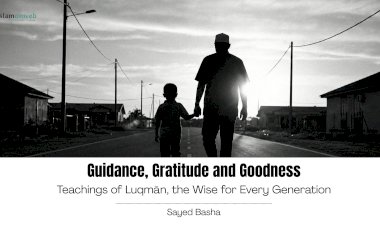

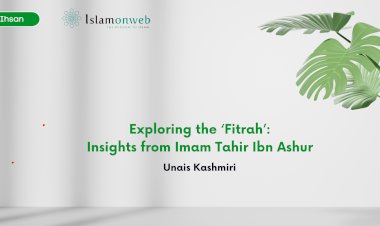
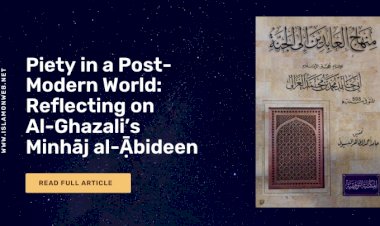
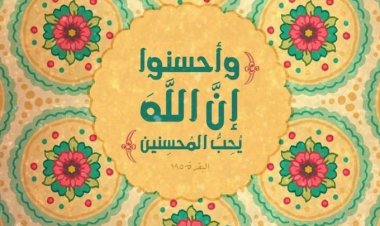
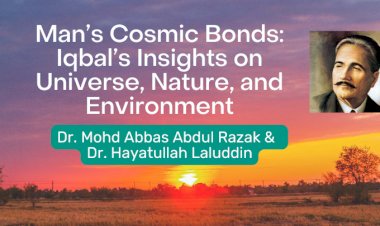














Leave A Comment